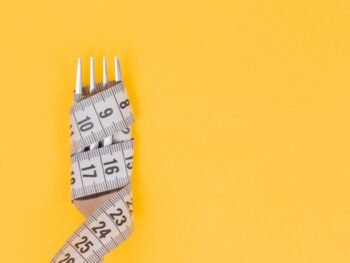Establishing realistic weight loss goals is a crucial first step in any weight loss journey. It is essential to understand that weight loss is not merely a number on a scale; it is a multifaceted process that involves physical, emotional, and psychological changes. Setting achievable goals helps to create a roadmap for success, allowing individuals to focus on incremental progress rather than overwhelming themselves with the end result.
For instance, aiming to lose 50 pounds in a short period can lead to frustration and disappointment if the goal is not met. Instead, breaking this larger goal into smaller, more manageable milestones—such as losing 5 or 10 pounds at a time—can foster a sense of accomplishment and motivation. This approach not only makes the journey feel less daunting but also encourages the development of healthy habits that can be sustained over the long term.
Moreover, it is vital to consider individual circumstances when setting these goals. Factors such as age, gender, current weight, and overall health can significantly influence the rate at which one can lose weight. For example, younger individuals may find it easier to shed pounds due to a higher metabolic rate, while older adults may need to adopt a more gradual approach.
Additionally, personal lifestyle factors, such as work schedules and family commitments, should be taken into account when establishing weight loss targets. By setting realistic and personalized goals, individuals can create a more tailored plan that aligns with their unique situations, ultimately leading to greater success and satisfaction in their weight loss endeavors.
Key Takeaways
- Setting realistic weight loss goals is important for long-term success
- It may take 6-12 months to lose 50 pounds in a healthy and sustainable way
- Factors such as age, metabolism, and activity level can affect the speed of weight loss
- A sustainable weight loss plan includes balanced nutrition and regular exercise
- Diet and exercise are both crucial for losing 50 pounds and maintaining weight loss
- Tracking progress and making adjustments helps stay on track with weight loss goals
- Seeking support and accountability from friends, family, or a support group can be beneficial
- Celebrating milestones and maintaining weight loss requires ongoing effort and commitment
Calculating the time needed to lose 50 pounds
Understanding the time required to lose 50 pounds is essential for maintaining motivation and setting realistic expectations. A common guideline suggests that a safe and sustainable rate of weight loss is about 1 to 2 pounds per week. This means that losing 50 pounds could take anywhere from 25 to 50 weeks, depending on various factors such as diet, exercise, and individual metabolism.
By calculating this timeframe, individuals can better prepare themselves for the journey ahead and avoid the pitfalls of impatience or frustration that often accompany weight loss efforts. It is important to remember that slow and steady progress is often more sustainable than rapid weight loss, which can lead to muscle loss and nutritional deficiencies. In addition to the general guidelines for weight loss, it is also beneficial to consider personal circumstances that may affect the timeline.
For instance, someone who has a sedentary lifestyle may initially experience more significant weight loss as they begin to incorporate physical activity into their routine. Conversely, individuals who are already active may find that their progress slows down as they reach closer to their goal weight. This phenomenon, known as a weight loss plateau, can be discouraging but is a normal part of the process.
By understanding these dynamics and being patient with oneself, individuals can maintain a positive mindset throughout their journey and remain committed to their long-term health goals.
Factors that affect the speed of weight loss

Several factors can influence the speed at which an individual loses weight, making it essential to consider these elements when embarking on a weight loss journey. One of the most significant factors is metabolism, which refers to the body's ability to convert food into energy. Individuals with a faster metabolism tend to burn calories more efficiently, allowing for quicker weight loss.
Age also plays a critical role in metabolism; as people age, their metabolic rate typically decreases, making it more challenging to lose weight. Additionally, hormonal changes can impact how the body stores and burns fat, particularly in women during menopause or those with thyroid issues. Another important factor affecting weight loss speed is dietary choices.
The quality and quantity of food consumed directly influence caloric intake and nutritional balance. A diet rich in whole foods—such as fruits, vegetables, lean proteins, and whole grains—can promote faster weight loss compared to one high in processed foods and sugars. Furthermore, portion control plays a vital role; even healthy foods can contribute to weight gain if consumed in excessive amounts.
Physical activity is another critical component; regular exercise not only burns calories but also builds muscle mass, which can further enhance metabolic rate. By understanding these factors and how they interact with one another, individuals can make informed decisions that support their weight loss goals.
Creating a sustainable and healthy weight loss plan
Developing a sustainable and healthy weight loss plan requires careful consideration of various elements that contribute to long-term success. First and foremost, it is essential to establish a balanced diet that provides adequate nutrition while promoting weight loss. This means incorporating a variety of food groups to ensure that the body receives all necessary vitamins and minerals.
A well-rounded meal plan should include plenty of fruits and vegetables, lean proteins, healthy fats, and whole grains. Additionally, it is crucial to practice portion control and mindful eating habits to prevent overeating and promote satisfaction with smaller portions. In addition to dietary considerations, incorporating regular physical activity into one’s routine is vital for creating a sustainable weight loss plan.
Finding enjoyable forms of exercise can make it easier to stay committed; whether it’s dancing, swimming, hiking, or participating in group fitness classes, engaging in activities that bring joy can help maintain motivation over time. It is also beneficial to set aside specific times for workouts each week to establish consistency. Furthermore, combining cardiovascular exercises with strength training can maximize calorie burn while building muscle mass.
By creating a comprehensive plan that addresses both nutrition and exercise, individuals can foster healthy habits that support their weight loss journey while ensuring they are sustainable in the long run.
The importance of diet and exercise in losing 50 pounds
Diet and exercise are two fundamental pillars of any successful weight loss strategy, particularly when aiming to lose a significant amount of weight like 50 pounds. A well-balanced diet provides the necessary nutrients for overall health while creating a caloric deficit essential for weight loss. This means consuming fewer calories than the body expends through daily activities and exercise.
Focusing on whole foods—such as fruits, vegetables, lean proteins, and whole grains—can help individuals feel fuller for longer while providing essential nutrients that support bodily functions. Additionally, reducing processed foods high in sugar and unhealthy fats can significantly impact overall caloric intake and promote healthier eating habits. Exercise complements dietary changes by increasing caloric expenditure and improving overall fitness levels.
Engaging in regular physical activity not only aids in burning calories but also enhances muscle tone and boosts metabolism. A combination of aerobic exercises—like running or cycling—and strength training—such as lifting weights or bodyweight exercises—can yield optimal results for weight loss. Moreover, exercise has numerous mental health benefits; it releases endorphins that improve mood and reduce stress levels, making it easier to stick with dietary changes and maintain motivation throughout the journey.
By prioritizing both diet and exercise in their weight loss efforts, individuals can create a balanced approach that fosters lasting change.
Tracking progress and making adjustments

Monitoring progress is an essential aspect of any weight loss journey, as it allows individuals to assess their efforts and make necessary adjustments along the way. Keeping track of various metrics—such as weight changes, body measurements, or even fitness levels—can provide valuable insights into what strategies are working effectively and which may need reevaluation. Many people find success using journals or mobile apps designed for tracking food intake and exercise routines; these tools can help maintain accountability while providing a clear picture of progress over time.
Regularly reviewing this information can also serve as motivation by highlighting achievements and reinforcing commitment to the overall goal. As individuals track their progress, it is crucial to remain flexible and open to making adjustments when needed. Weight loss is rarely linear; plateaus or fluctuations are common occurrences that can be disheartening if not addressed properly.
If progress stalls despite consistent efforts in diet and exercise, it may be time to reassess caloric intake or modify workout routines to reignite momentum. Additionally, factors such as stress levels or sleep quality can impact weight loss efforts; addressing these areas may lead to improved results as well. By staying attuned to personal progress and being willing to adapt strategies accordingly, individuals can navigate challenges effectively while continuing on their path toward achieving their weight loss goals.
Seeking support and accountability
Embarking on a weight loss journey can be challenging; therefore, seeking support from friends, family members, or professional resources can significantly enhance motivation and accountability. Sharing goals with others creates a sense of community that fosters encouragement during difficult times. Whether through informal check-ins with friends or joining a structured support group or online community focused on health and wellness, having people who understand the journey can make all the difference in maintaining commitment over time.
These connections provide opportunities for sharing experiences, exchanging tips, and celebrating successes together. In addition to social support networks, working with professionals such as registered dietitians or personal trainers can offer valuable guidance tailored specifically to individual needs. These experts can provide personalized meal plans or workout routines based on unique circumstances while also helping individuals navigate potential obstacles along the way.
Furthermore, regular check-ins with these professionals can help maintain accountability by ensuring adherence to established goals and strategies. By leveraging both social support systems and professional resources, individuals can create a robust framework for success in their weight loss endeavors.
Celebrating milestones and maintaining weight loss
Recognizing milestones throughout the weight loss journey is vital for sustaining motivation and reinforcing positive behaviors over time. Celebrating achievements—whether big or small—can help individuals appreciate their hard work while fostering a sense of accomplishment that propels them forward toward their ultimate goal. Milestones might include reaching specific weight targets or fitting into previously snug clothing items; acknowledging these moments serves as reminders of progress made thus far.
Additionally, celebrating non-scale victories—such as improved energy levels or enhanced physical fitness—can further reinforce commitment by highlighting the broader benefits of adopting healthier habits. Once individuals reach their desired weight loss goal, maintaining those results becomes equally important. This often requires ongoing dedication to healthy eating habits and regular physical activity; however, it does not mean adhering strictly to previous routines without flexibility.
Instead, finding ways to incorporate enjoyable foods or activities into daily life can help prevent feelings of deprivation while still promoting overall wellness. Establishing new goals—such as training for an event or exploring new fitness classes—can also provide fresh motivation post-weight loss journey while ensuring continued engagement with healthy lifestyle choices. By celebrating milestones along the way and adopting strategies for long-term maintenance after reaching goals, individuals can cultivate lasting change that supports overall health and well-being for years to come.
If you're exploring effective strategies for weight loss, such as aiming to lose 50 pounds, incorporating exercise into your routine can significantly enhance your efforts. A related article that discusses the benefits of morning exercise might be particularly insightful. Morning workouts can boost your metabolism and set a positive tone for the day, potentially leading to more consistent weight loss. You can read more about the advantages of exercising in the morning and how it could help with weight management by visiting this link: Exploring the Impact of Morning Exercise on Weight Loss. This article could provide valuable insights and motivation for those looking to achieve significant weight loss goals.










